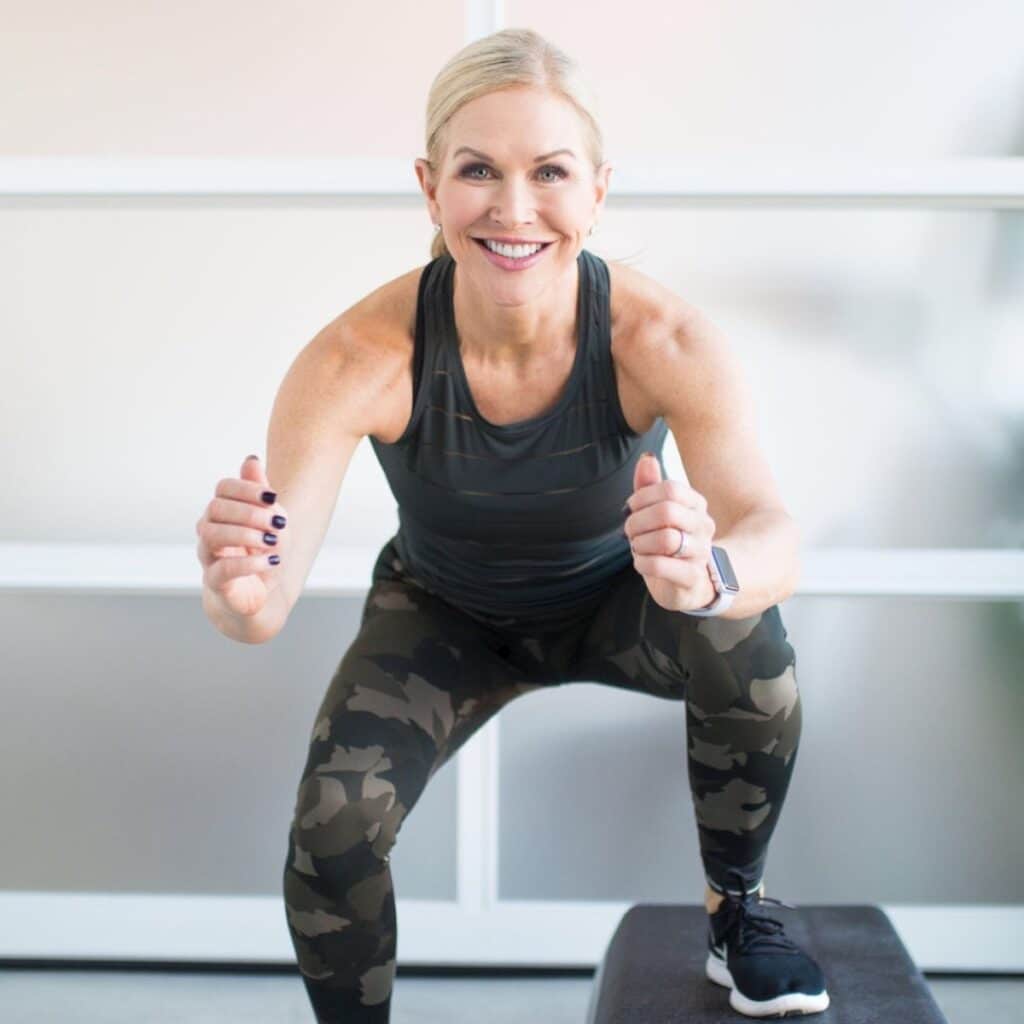This post contains affiliate links. Please see our disclosure policy.
The yogi squat is one of the best hip openers you will find! It’s an amazing yoga pose that can and should be done both before and after a workout or as part of a yoga practice.

Save This Article To Read Later
Yogi Squat Instructions
- Begin on feet, crouched down with tailbone between ankles and hands in prayer at chest.
- Continue to press hands firmly together while at the same time pressing elbows against inner thighs.
- Hold and breathe for 30 seconds.
Benefits of Yogi Squat
There are many reasons you should incorporate the yogi squat into your workouts. Here are just a few:
Stretches and Opens Your Hips
Whether you exercise frequently or spend most of the day sitting, hips and hip flexors are a tight spot on the body. The yogi squat will be difficult to get into if you are extremely tight. However, once you work through it and can settle into the pose, you will want to do it every day!
Gives You Stronger Legs
Getting in and out of the yogi squat requires leg strength in the quadriceps and hamstrings as well as the glutes. Even being in the isometric position of holding the yogi squat will require an amount of strength from your leg muscles.
Stretches and Releases Your Lower Back
The yogi squat is an excellent way to stretch and release your lower back. Sitting in the pose and breathing help the back muscles open up and let go.
Easy Ways to Incorporate the Yogi Squat Into Your Workouts
Yogi Squat is a great exercise all on its own! However, you could also incorporate the yogi squat into other workouts to mix them up.
Here are some ideas to get you started:
Use the Yogi Squat as a Post Workout Stretch
Any workout you do is going to require a great stretch at the end to get your muscles released and prepared for the next time you exercise. The yogi squat is a great stretch to use following a workout of any kind.
Post-Workout Stretch
This stretch routine includes the yogi squat and gives you an overall great way to finish any workout. Hold each stretch for 30-60 seconds:
- Standing Side Bend – Right
- Standing Side Bend – Left
- Crescent Lunge on Knee – Right
- Crescent Lunge on Knee – Left
- Yogi Squat
- Pigeon Pose Right
- Pigeon Pose Left
- Seated Forward Fold
Use Yogi Squat in a Yoga Workout
Yoga is known for building strength and calm as well as stretching your muscles and connective tissue. The yogi squat is an amazing pose to incorporate into your yoga practice.
Check it out in our Day Starter Yoga Workout:
This invigorating yoga sequence is a great way to wake up and start the day! All you need is a mat or a little space to move.
Start by standing in Mountain Pose with your eyes closed and take 5 deep breaths. Then flow between mountain and Yogi Squat 5 times.
Then step wide and go down into Sun God and lift up 5 times with deep breaths.
Move back to Mountain Pose and flow through the following 5 times:
Step your feet through and sit down and do each of the following for 3-5 breaths:
Now go and enjoy a day full of energy!
Use Yogi Squat in a Strength Workout
Yogi Squat can be used in a strengthening workout. In fact, you can add a bicep curl to a yogi squat and be stretching your hips, strengthening your legs and biceps all at the same time.
At Home Strength Challenge
Grab a medium pair of dumbbells and go from one move directly to the next:
- Arnold Press – 10 reps
- Tricep Dips – 12 reps
- Shoulder Tap Push Ups – 12 reps
- Squat Thruster– 12 Reps (alternating)
- Yogi Squat with Bicep Curl – 12 Reps
- Overhead Shoulder Press – 12 Reps
- Overhead Pulls – 12 Reps
- Renegade Rows – 12 Reps (alternating)
Here are three more workouts that incorporate the yogi squat:


